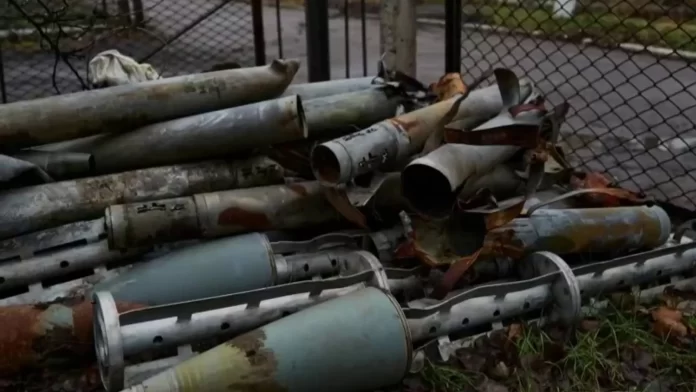Less than a week after the US promised to provide the controversial weapons to Ukrainian forces, a US military official claims Ukraine has received cluster munitions.
On Thursday, US Lieutenant General Douglas Sims claimed that Ukraine is home to the cluster munitions.”
He explained to reporters that “this is hard warfare, it’s in really tough terrain, it’s under fire” when asked about the counteroffensive’s slower-than-expected progress.
read more: US instigating Ukraine war as it decide to send banned cluster munitions to Kyiv
He continued, “Considering all that, it’s pretty remarkable”.
Despite reservations regarding the long-term risk posed to civilians by bomblets that fail to detonate, the US announced on July 7 that it would send Kyiv cluster munitions as part of an $800 million security package intended to aid Ukrainian forces against Russia.
The information was confirmed on Thursday by a commander in the Ukrainian army.
Oleksandr Tarnavskyi, commander of the Ukrainian army, told CNN that although they have not yet been used, they have the potential to drastically alter the battlefield.
The enemy is aware of the advantage we will have once we obtain this ammunition, Tarnavskyi said.
He added that the weapon would not be used by Ukrainian forces in densely populated areas.
If Kyiv uses the munitions against its forces, Russia has vowed to take countermeasures in response.
The use of these munitions “changes the situation, and of course, it would force Russia to take countermeasures,” Kremlin spokesman Dmitry Peskov told reporters on Wednesday, declining to elaborate on what “countermeasures” would entail.
Although it was “very difficult” to decide to supply the weapons, US President Joe Biden noted last week that Ukrainian forces were “running out of ammunition.”
“Either they have the weapons to thwart the Russians right now and prevent them from halting the Ukrainian offensive through these areas, or they don’t. He added, “And I believe they were needed.
In a statement, the Pentagon referred to cluster munitions as part of the “dual-purpose improved conventional munitions” that were included in the new military aid package that was announced on July 7.
Numerous nations, including its Western allies, disagreed with Washington’s decision.
The Convention on Cluster Munitions (CCM), a treaty that addresses the humanitarian repercussions and intolerable harm caused to civilians by cluster munitions, forbids the use of cluster bombs categorically and provides a framework for action.
The weapons can have dozens of smaller bomblets inside of them, which scatter over large areas and frequently kill and injure civilians. Because bomblets that have not yet detonated can endanger civilians for years after a battle has ended, CCMs are prohibited.
Submunitions released by cluster munitions can cover a five times larger area than those released by conventional bombs.
The use, manufacture, transfer, and stockpiling of cluster bombs are all prohibited by the Convention on Cluster Munitions, which came into force in 2010. The US, Russia, and Ukraine have not ratified the treaty, despite more than 100 other nations having done so.













